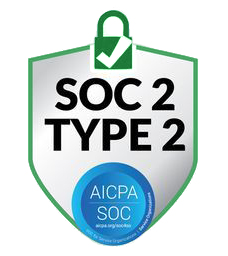October 13, 2023
Cleanlist observed a further decline in collection activity this past quarter. Its proprietary collection data shows fewer Canadians received collection letters in their mailboxes in the just-closed third quarter.
A decline in collection activity over the summer months is expected (when consumer priorities are engaged elsewhere). But this reduction in collection activity also follows lower consumer delinquency rates reported in Q2 by TransUnion; less delinquency = less collection activity. Maybe Canadians are getting their financial houses in order?
According to TransUnion’s ‘Q2 2023 Credit Industry Insights Report’, Q2 delinquency rates in Canada have fallen 3.05% (from 1.57% in Q1 to 1.52% in Q2).
Although delinquency rates are up year-over-year, there are a few reasons behind this recent decline. With the current interest rates and economy, lenders have become more cautious, ensuring borrowers can handle their obligations, effectively reducing delinquency rates.
Understanding delinquency rates
Delinquency rates refer to the percentage of borrowers who are behind on their scheduled payments for credit products such as credit cards, loans, or mortgages. A lower delinquency rate suggests that a smaller portion of borrowers are struggling with their debt obligations, which is generally considered a positive sign for the economy and individual financial well-being.
The impact of delinquency rates on collection activity in Canada
Canadians, like citizens of any other country, rely on credit products to manage their finances, and monitoring delinquency rates is a key indicator of financial health. In recent years, Canada has witnessed a cyclical rise and fall of delinquency rates, which has significant implications for the volume of collection activity.
Impact on Collection Activity
As delinquency rates decrease, the volume of collection activity is likely to be affected in several ways.
- There is a reduced need for collections with fewer individuals falling behind on their payments. Companies may find less need to engage in debt collection efforts.
- Financial institutions and companies may shift their focus from collections to customer retention and support. This can result in more personalized assistance to help borrowers stay on track, reducing the need for collection letters.
- Collections are a costly process for financial institutions. Lower delinquency rates mean reduced operational costs associated with debt recovery efforts.
Falling delinquency rates with credit products in Canada have a substantial impact on the volume of collection letters being sent to Canadians. It’s crucial for both lenders and borrowers to adapt to these changing dynamics, promoting responsible borrowing and financial well-being for all parties involved.
Stay tuned as this story unfolds. Cleanlist will continue its reporting, driven by the data it accumulates and analyzes.
by Sarah Lightfoot, Cleanlist Product Manager
About the data: The data presented in this report was summarized from Cleanlist’s proprietary collection activity database and TransUnion’s Q2 2023 Credit Industry Insights Report. To learn more about the data or for additional information, contact sales@cleanlist.ca.
Cleanlist is Canada’s largest customer data company. We clean, enrich, and validate business and consumer data. We’re also experts in data-driven document composition and Canada’s largest data provider for digital and offline marketing. To learn more, visit us at Cleanlist.ca




